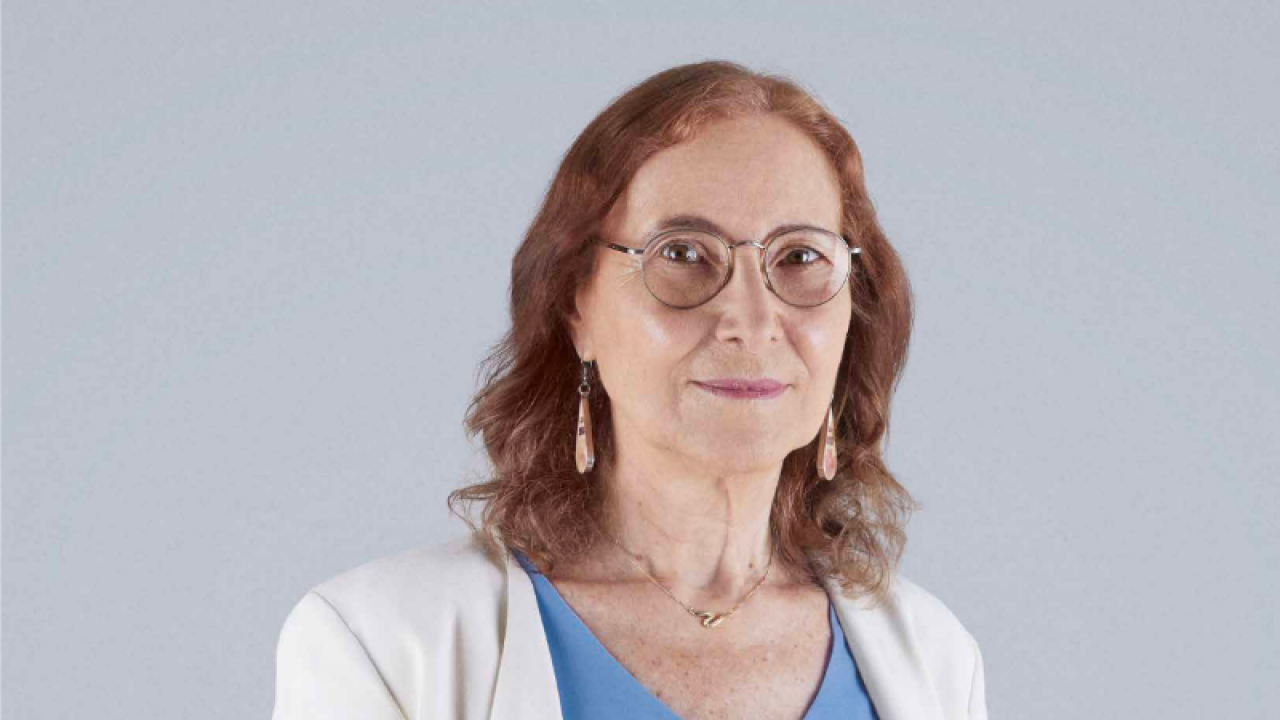
Congratulations to Dr. Alicia Dickenstein, who has just been awarded the 2021 L'Oreal-UNESCO International Award for Women in Science! An Argentinian mathematician with extensive connections to ICTP, Dickenstein is professor of mathematics at the University of Buenos Aires, senior researcher at the National Council for Scientific and Technical Research (CONICET) at the “Luis A. Santalo” Institute for Mathematical Research (IMAS, CONICET-UBA), and a former vice-president of the International Mathematical Union.
She was awarded the prize for her "outstanding contributions at the forefront of mathematical innovation by leveraging algebraic geometry in the field of molecular biology."
The L'Oreal-UNESCO prize is presented yearly to five outstanding scientists, one from each of five global regions- Latin America and the Caribbean, Africa and the Arab States, Asia and the Pacific, North America, and Europe. Several L'Oreal-UNESCO International Prize recipients have gone on to win the Nobel Prize. This year, the award recognizes researchers in mathematics, astrophysics, chemistry, and informatics. The five winners are: Dickenstein for Latin America and the Caribbean; Catherine Ngila for Africa and the Arab States; Kyoko Nozaki for Asia-Pacific; Shafi Goldwasser for North America and Françoise Combes for Europe.
Prof. Dickenstein's long-standing connection to ICTP started in 1987, when she first visited to take part in a mathematics activity. Since then, she has spoken and organized many other activities at ICTP, and values ICTP as a global meeting place for scientists. Often, little money is available for researchers to travel to conferences, so staying connected to the international scientific community can be difficult. Support to travel to ICTP "gave us an opportunity to go abroad and meet other scientists, colleagues, and people working in the same areas," says Dickenstein.
In addition to involvement with research activities at ICTP, Dickenstein was awarded the 2015 TWAS Award, from ICTP's sister organization, The World Academy of Sciences. Awarded to individual scientists from developing countries in recognition of an outstanding contribution to scientific knowledge, the TWAS Award cited Dickenstein for her "outstanding contribution to the understanding of discriminants."
Dickenstein is also an ICTP Simons Associate, a programme that enables individual scientists to maintain long-term formal contacts with ICTP's stimulating and active scientific environment. Enabled by a grant from the Simons Foundation, the associates are supported with travel grants, resources, and facilities. On a recent visit to ICTP, she sat down for a video interview about her work, produced by ICTP's Mathematics Section.
Announced on the International Day of Women and Girls in Science, February 11, the L'Oreal-UNESCO prize honors scientists with "a unique career path combining exceptional talent, a deep commitment to her profession, and remarkable courage in a field still largely dominated by men." This is the 23rd International Prize for Women in Science, for which each awardee is given 100,000 euros with the aim of helping to remove barriers frequently faced by women in science. "It is not enough to attract women to a scientific or technological discipline. We must also know how to retain them, ensuring that their careers are not strewn with obstacles and that their achievements are recognized and supported by the international scientific community," says Shamila Nair-Bedouelle, Assistant UNESCO Director-General for Natural Sciences, in a press release announcing the five winners.
As UNESCO notes in the press release "Every year, women write as many scientific articles as men, but their chances of appearing in prestigious journals are lower. While women represent 33% of researchers, on average they only occupy 12% of seats on national science academies around the world."
There is a long way to go to make science a meritocracy-based system and to eliminate discrimination against women. This award and Dickenstein's distinguished hard work is moving us towards those goals.
















